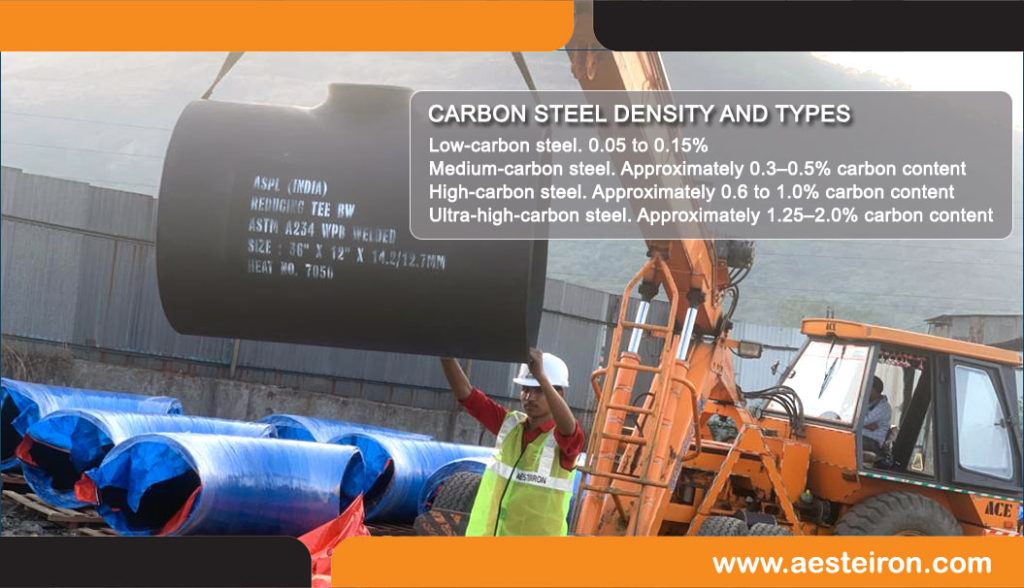
Introduction to Carbon Steel
Carbon steel is a type of alloy steel that contains between 0.12% and 2% carbon by weight. It is widely used in various industries due to its versatility, strength, and cost-effectiveness. Different grades of carbon steel are available, each designed for specific applications based on their carbon content and mechanical properties.
Why Is Carbon Steel Density Important?
The density of carbon steel plays a crucial role in engineering and manufacturing. It directly affects the material’s weight, which is essential when designing structures or components where weight efficiency is key. Additionally, it influences the strength-to-weight ratio, making it a critical factor in selecting the right material for different applications.
Factors That Influence Carbon Steel Density
- The amount of carbon present in the steel significantly affects its density.
- Heat treatment processes can alter the microstructure, thereby influencing the overall density.
- Temperature and pressure conditions during production can also impact the final density of the material.
- The grain size within the steel's microstructure plays a role in determining its density.
- Surface treatments such as coatings or polishing may slightly modify the surface density of the steel.
How to Calculate Carbon Steel Density
Carbon Steel Round Bar
To calculate the weight per meter, use the formula:
Outer Diameter (in mm) × Outer Diameter (in mm) × 0.00623
For example: (80mm × 80mm) × 0.00623 = 39.872 kg/m.
Carbon Steel Pipe or Tube
Formula: (Outer Diameter in mm – Thickness in mm) × Thickness in mm × 0.0248
Example: (88.9mm – 3.05mm) × 3.05mm × 0.0248 = 6.49 kg/m.
Carbon Steel Plate or Sheet
Formula: Width (in mm) × Length (in mm) × Thickness (in mm) × 0.00000784
Example: 6mm × 1250mm × 2500mm × 0.00000784 = 147 kg per piece.
How Does Density Affect Carbon Steel Properties?
Density is a fundamental property that influences many characteristics of carbon steel:
- Strength-to-Weight Ratio: High density combined with strong mechanical properties makes carbon steel ideal for applications where strength is needed without excessive weight, such as in aerospace or automotive industries.
- Corrosion Resistance: While not as corrosion-resistant as stainless steel, carbon steel forms a protective oxide layer that helps prevent rust under normal conditions.
- Machinability: The relatively low density and softer nature of carbon steel make it easier to machine compared to other metals like titanium or aluminum.
- Thermal Conductivity: The density affects how well the material conducts heat, which is important in high-temperature applications.
- Wear Resistance: Higher density often correlates with better wear resistance, making it suitable for parts that experience friction or abrasion.
- Formability: The density impacts how easily the steel can be shaped through bending, rolling, or forging.
- Impact Resistance: Proper density contributes to the material’s ability to withstand sudden loads or impacts.
- Cost Efficiency: Understanding density helps in optimizing material usage, reducing waste, and lowering costs in large-scale production.
Conclusion
Understanding the density of carbon steel is vital for engineers, manufacturers, and anyone working with this material. It not only affects the weight and strength of the final product but also influences performance, durability, and cost. By knowing the density, professionals can make informed decisions about material selection, ensuring quality, reliability, and efficiency in their applications. Whether you're designing a structure, manufacturing a component, or simply working with metal, awareness of carbon steel density is essential for success.